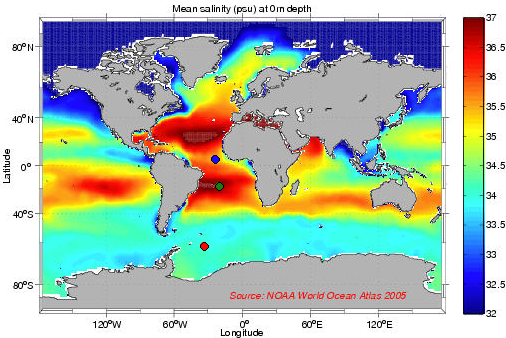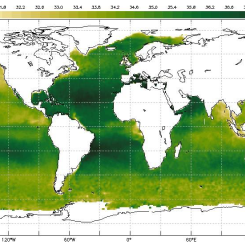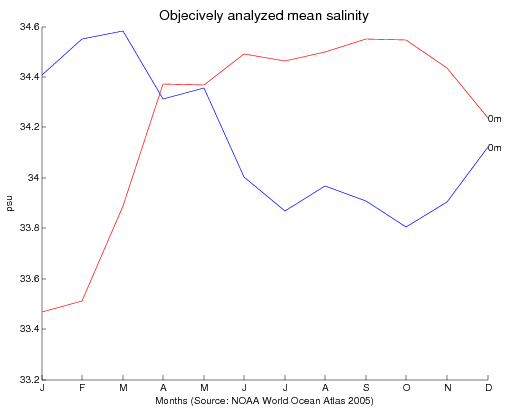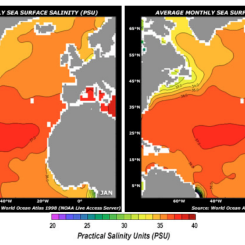Mini Lesson/Activity
Energy and Matter: Exploring Ocean Salinity
Overview
This NASA visualization shows sea surface salinity observations (September 2011-September 2014). Students review the video and answer questions.
Student Directions
Salt is really just a molecule in the ocean water, but collectively, that salinity plays an important role in the ocean circulation. The rule is simple - salt makes water heavier, so it sinks. In other words, salty water has more materials in the water than freshwater which makes it more dense than freshwater. The salt in the ocean affects its density (the amount mass per volume) and impacts where the water goes as it circulates throughout the globe.
Steps
- Review the NASA Video of sea surface salinity observations (September 2011-September 2014) from the Aquarius/SAC-D mission, a collaboration between NASA and the Space Agency of Argentina. The data is shown on a spinning globe.
- Answer the following questions. Check with your instructor on how to submit your answers.
- What is salinity?
- Why is salinity important in the water cycle and in ocean circulation?
- In the video, what color represents high salinity values? Low?
- Where do you see the greatest concentrations of low salinity values? High salinity values?
- Based on what you know about the water cycle, what causes changes in the salinity values?
- Create a narration script that describes your observations over the course of this 30 second video.
Teacher Note
Teachers, these mini lessons/student activities are perfect "warm up" tasks that can be used as a hook, bell ringer, exit slip, etc. They take less than a class period to complete. Learn more on the "My NASA Data What are Mini Lessons?" page.
Teachers who are interested in receiving the answer key, please complete the Teacher Key Request and Verification Form. We verify that requestors are teachers prior to sending access to the answer keys as we’ve had many students try to pass as teachers to gain access.
Disciplinary Core Ideas:
- ESS2A: Earth Materials and Systems
Crosscutting Concepts:
- Patterns
Science and Engineering Practices:
- Developing and Using Models
- Analyzing and Interpreting Data
- Using Mathematics and Computational Thinking






